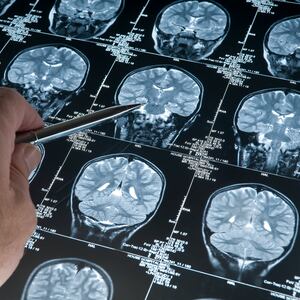Health
Neurologists Explore New Therapies to Enhance Brain Recovery

Researchers are investigating innovative therapies that could enhance the brain’s natural healing processes, particularly following neurological incidents such as strokes. Dr. Sean Dukelow, a neurologist at Foothills Hospital in Calgary, Canada, highlights the limitations of current treatment options. Over his **15 years** of experience in treating stroke patients, he has primarily relied on neurorehabilitation techniques, which involve repetitive actions through speech, physical, and occupational therapies. These methods have been shown to promote the brain’s natural plasticity, leading to neuron growth and new neural connections.
While neurorehabilitation is effective, Dr. Dukelow notes that the options for long-term recovery are limited, often involving invasive procedures like vagus nerve or spinal cord stimulation. He emphasizes the critical need for additional therapies that could serve as a “turbo boost” for brain recovery. “That turbo boost may be the difference between you walking again, talking again, being able to get home, versus having to go to a nursing home,” he explained.
Investigating Promising Therapeutic Approaches
Several potential candidates are emerging in the realm of neurological recovery. These include transcranial magnetic stimulation (TMS), antidepressant medications, and psychedelics. Traditionally associated with treating mental health conditions such as depression and post-traumatic stress disorder (PTSD), these therapies may also play a role in enhancing cognitive and physical recovery.
In psychiatry, these methods are believed to interact with the neural circuits responsible for memory and learning. This interaction could similarly facilitate recovery for stroke patients by creating alternative pathways around damaged neurons. The concept is that therapies designed to reset disordered neural activity might also assist in repairing damaged brain structures, fostering new ways for individuals to regain lost abilities such as walking, speaking, and remembering.
The exploration of these therapies marks a significant shift in the approach to neurological rehabilitation. While traditional rehabilitation focuses on repetitive tasks, these emerging treatments could offer a complementary or alternative method to stimulate recovery in patients who have suffered significant brain injuries.
Current Research and Future Directions
The potential impact of these therapies on brain recovery is drawing the attention of neurologists and researchers worldwide. The ongoing studies aim to determine the effectiveness of TMS, antidepressants, and psychedelics in promoting neuronal repair and functional recovery.
While preliminary results are promising, further research is necessary to establish the safety and efficacy of these approaches in a broader context. Dr. Dukelow and his colleagues are keen to understand whether these therapies can be integrated into existing rehabilitation programs and how they might influence outcomes for patients.
As the medical community continues to explore these avenues, the hope remains that effective, non-invasive treatments will emerge to enhance recovery for those affected by neurological catastrophes. The future may hold new possibilities for brain repair that not only improve the quality of life for patients but also offer a chance for recovery that was previously thought unattainable.
-

 World3 months ago
World3 months agoTest Your Knowledge: Take the Herald’s Afternoon Quiz Today
-

 Sports3 months ago
Sports3 months agoPM Faces Backlash from Fans During Netball Trophy Ceremony
-

 Lifestyle3 months ago
Lifestyle3 months agoDunedin Designers Win Top Award at Hokonui Fashion Event
-

 Sports3 months ago
Sports3 months agoLiam Lawson Launches New Era for Racing Bulls with Strong Start
-

 Lifestyle3 months ago
Lifestyle3 months agoDisney Fan Reveals Dress Code Tips for Park Visitors
-

 Health3 months ago
Health3 months agoWalking Faster Offers Major Health Benefits for Older Adults
-

 World3 months ago
World3 months agoCoalition Forms to Preserve Māori Wards in Hawke’s Bay
-

 Politics3 months ago
Politics3 months agoScots Rally with Humor and Music to Protest Trump’s Visit
-

 Top Stories3 months ago
Top Stories3 months agoUK and India Finalize Trade Deal to Boost Economic Ties
-

 Entertainment3 months ago
Entertainment3 months agoExperience the Excitement of ‘Chief of War’ in Oʻahu
-

 World3 months ago
World3 months agoHuntly Begins Water Pipe Flushing to Resolve Brown Water Issue
-

 Science3 months ago
Science3 months agoNew Interactive Map Reveals Wairarapa Valley’s Geological Secrets









